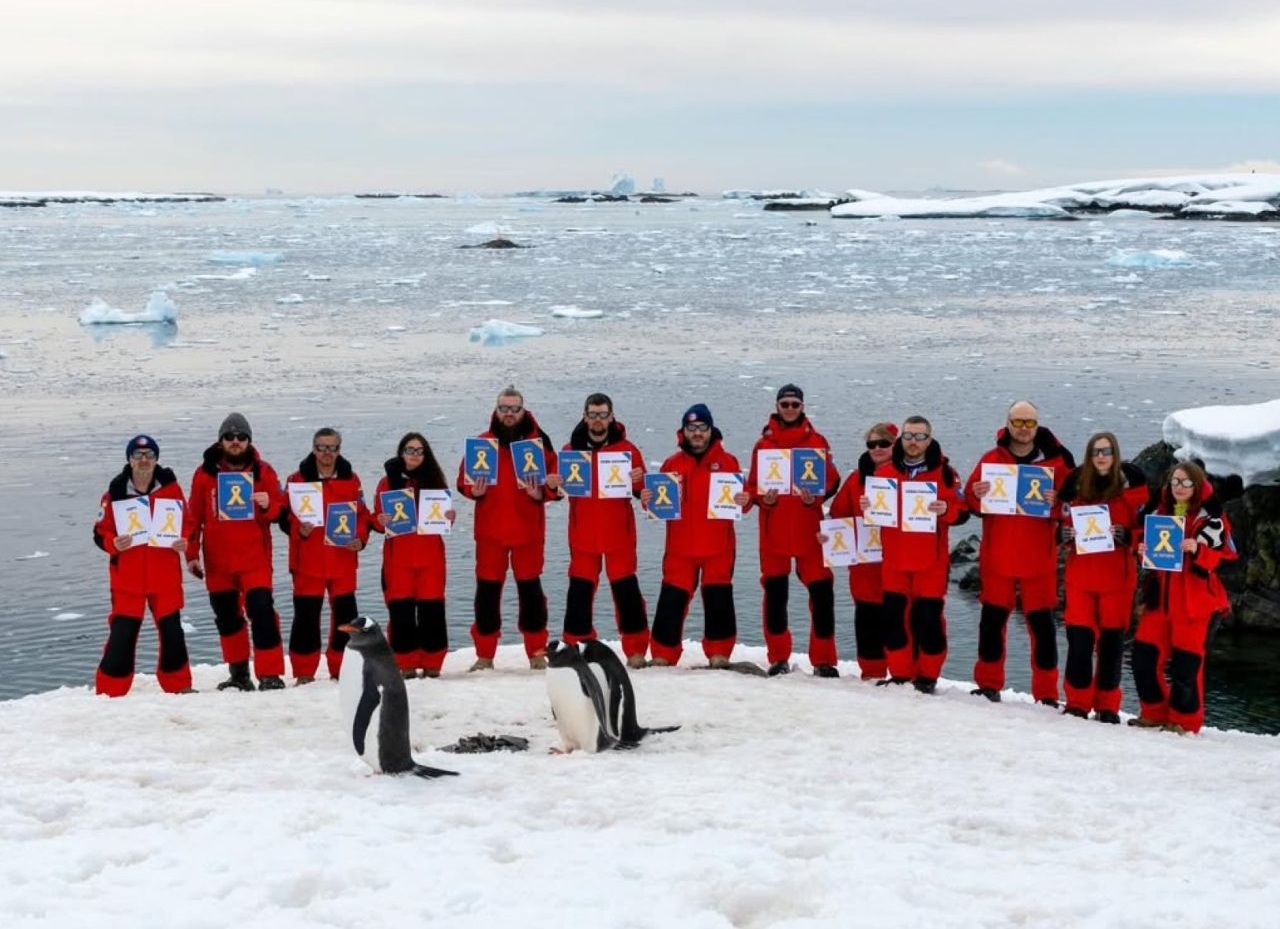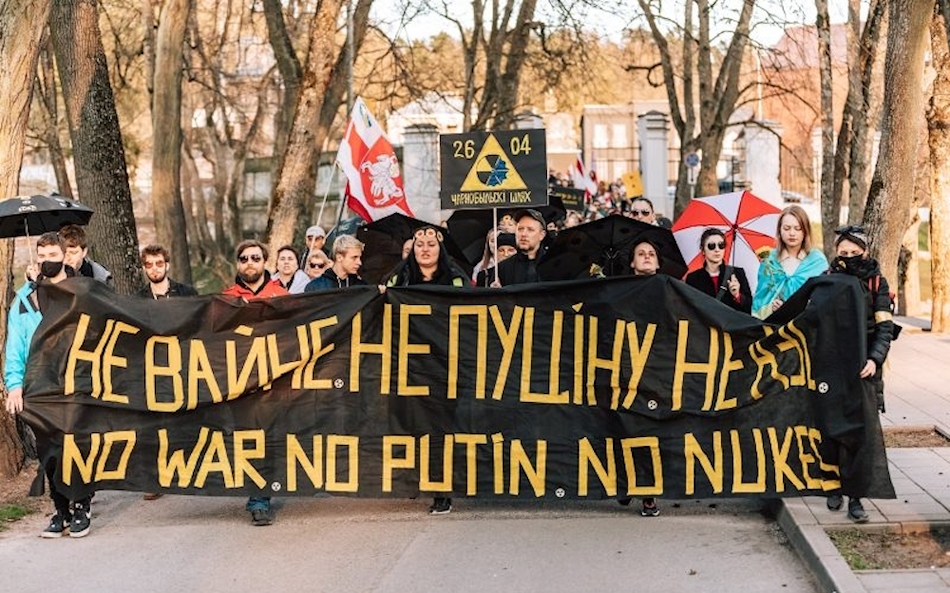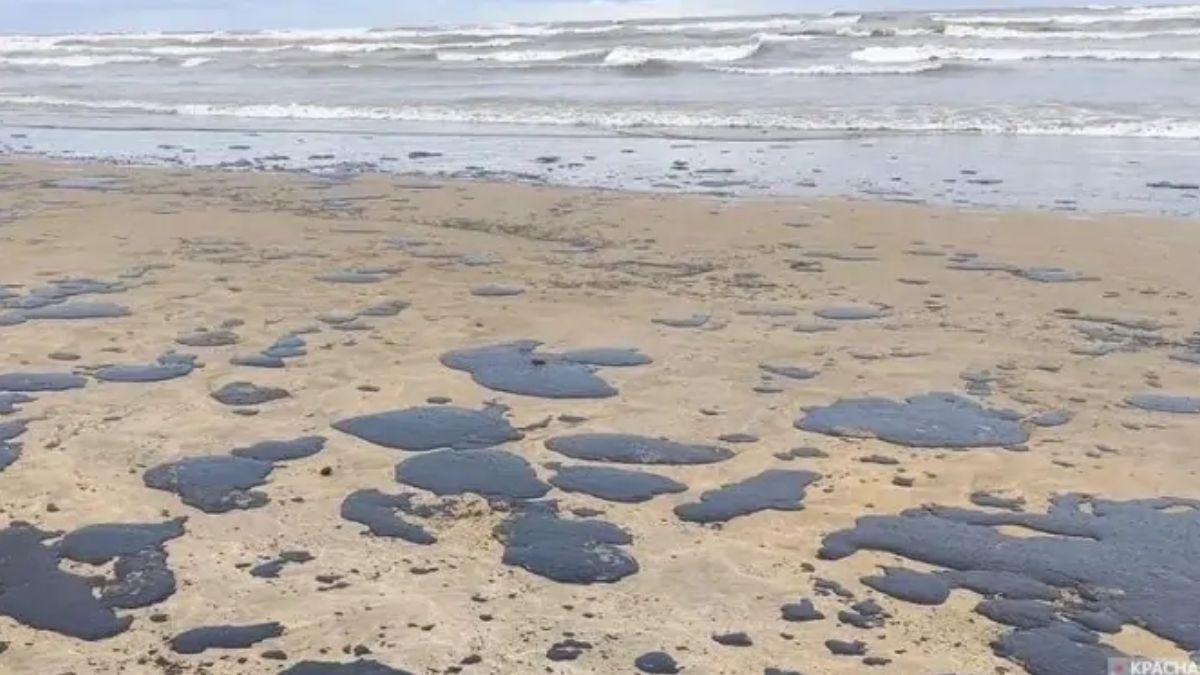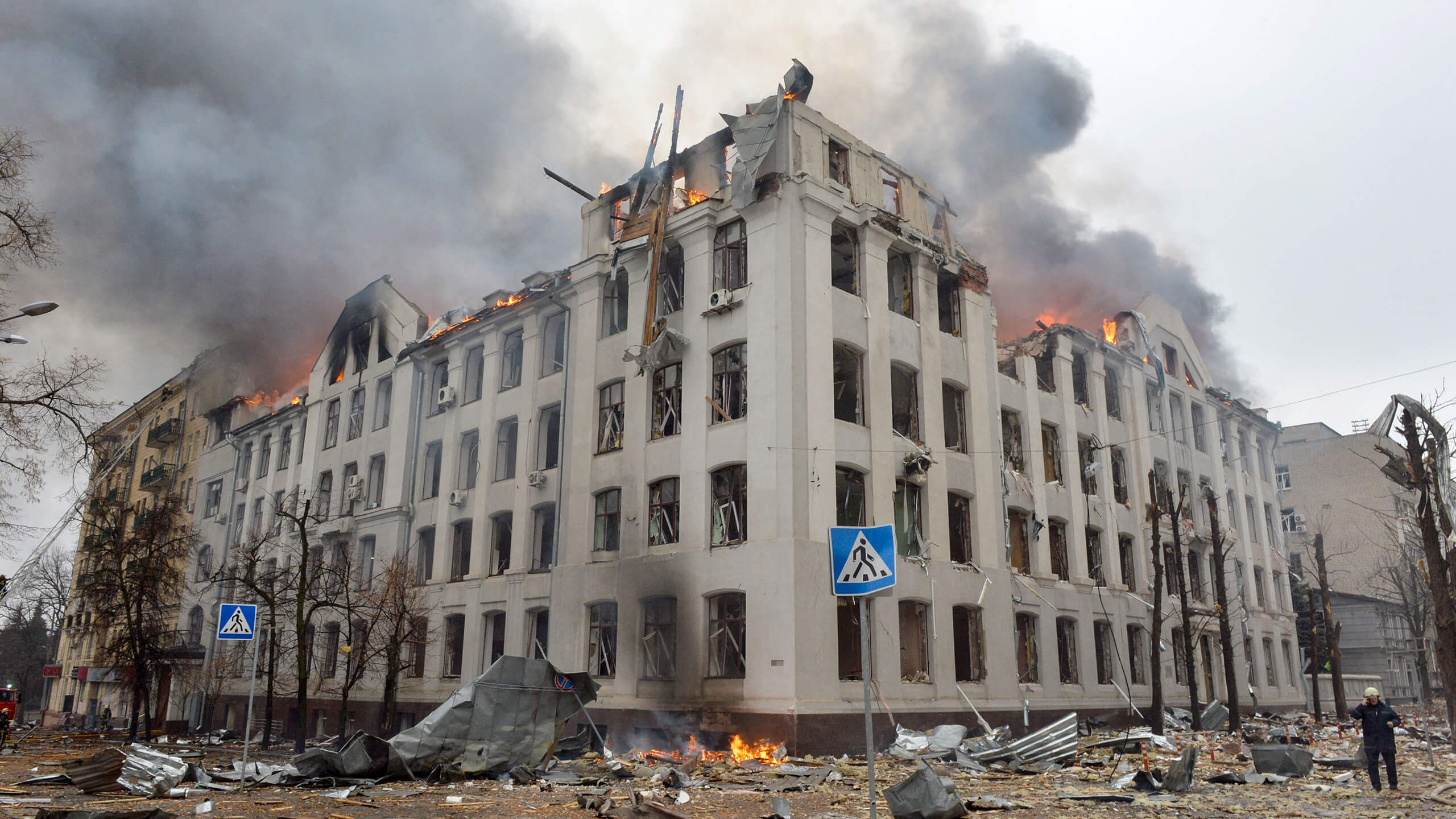by Alexej Ovchinnikov
Translated by Jennifer Castner
Russia’s full-scale invasion of Ukraine has once again highlighted the fact that crimes against nature have no legal recognition at the international level. In response to environmental destruction stemming from military aggression, environmental NGOs are today intensifying their call for ecocide to fall within the International Criminal Court’s jurisdiction. According to activists and experts, this would not only benefit Ukraine, but also the global movement fighting for the rights of nature.
At present, the Rome Statute, which governs the activities of the International Criminal Court (ICC) allows the ICC to review four types of crimes: genocide, war, crimes against humanity, and crimes of aggression. Ecocide is not included in the statute, although large-scale crimes against nature may be considered under the headings of war crimes or crimes of aggression. However, as written, the statute does not place crimes related to environmental pollution, deforestation, depletion of natural ecosystems, and others under the jurisdiction of the ICC. From another perspective these are actions that specifically result in climate change impacts.
What is ecocide?
Although a definition of ecocide has not yet been consolidated in international legal practice, environmental lawyers have proposed several definitions.
For example, in June 2021 the Stop Ecocide International legal group proposed the following definition: “unlawful or wanton acts committed with knowledge that there is a substantial likelihood of severe and either widespread or long-term damage to the environment being caused by those acts.”
Article 8 ter Ecocide 1. For the purpose of this Statute, “ecocide” means unlawful or wanton acts committed with knowledge that there is a substantial likelihood of severe and either widespread or long-term damage to the environment being caused by those acts. 2. For the purpose of paragraph 1: a. “Wanton” means with reckless disregard for damage which would be clearly excessive in relation to the social and economic benefits anticipated; b. “Severe” means damage which involves very serious adverse changes, disruption or harm to any element of the environment, including grave impacts on human life or natural, cultural or economic resources; c. “Widespread” means damage which extends beyond a limited geographic area, crosses state boundaries, or is suffered by an entire ecosystem or species or a large number of human beings; d. “Long-term” means damage which is irreversible or which cannot be redressed through natural recovery within a reasonable period of time; e. “Environment” means the earth, its biosphere, cryosphere, lithosphere, hydrosphere and atmosphere, as well as outer space.
The lawyers’ group proposes to include this definition of ecocide in the ICC’s Rome Statute.
The definition focuses on intentional actions aimed at destroying ecosystems or polluting the environment. Accordingly, accidents at industrial sites or oil spills cannot be considered ecocide in a court of law if they can be proven to be emergencies or accidents. However, in the event that an enterprise carries out emissions while possessing information that such emissions can result in climate change and large-scale consequences for nature, then these actions can be classified as ecocide.
Today, a significant amount of industrial-scale production and resource extraction around the world meet this criterion. It may be that this legal loophole is the roadblock to preventing rapid adoption of the legal concept of ecocide at the international level. In fact, many large corporations that have caused significant severe environmental damage in the past or continue to do so today could be sued if such a legal concept were agreed upon.
Recognition of “ecocide” at the international level: examples and suggestions
Evidence of ecocide in human history is easy to uncover. Its catastrophic consequences began to be noted during World Wars I and II. However, the first open discussions of ecocide in world practice began after the use of “Agent Orange” by the United States in Vietnam. From 1961 to 1971, U.S. troops made wide use of chemical herbicides and defoliants, chemicals that belong to the Rainbow Herbicides tactical herbicides group, in order to destroy the jungle in which Viet Cong guerrilla groups were hiding. Obviously, these were deliberate actions to destroy ecosystems – actions which led to the deaths of humans and wildlife, including long-term health consequences and birth defects – which resulted in large-scale and long-term consequences.
It was the use of Agent Orange that prompted Yale University Professor Dr. Arthur W. Galston, at the 1970 Conference on War and National Responsibility in Washington, D.C., not only to use the term ecocide for the first time, but also to call for the immediate recognition of these crimes against nature.
The idea was actively supported around the world. In 1972, Swedish Prime Minister Olof Palme was the first to recognize the ecocide in Vietnam in political terms. In 1973 Princeton University law professor Richard Falk published an article calling for the adoption of an International Convention on Ecocide. Falk subsequently played an important role in the development of the concept of human rights including years of service to the United National Human Rights Council and Human Rights Watch while continuing to advance global advocacy regarding ecocide.
It is unsurprising that the first country to adopt a law on ecocide and include it in the country’s national criminal code was Vietnam (1990). However, it is interesting to note that many post-Soviet countries have characteristically recognized widespread and large-scale crimes against nature at the state level: Russia (1996), Kazakhstan (1997), Kyrgyzstan (1997), Tajikistan (1998), Georgia (1999), Belarus (1999), Ukraine (2001), Moldova (2002), and Armenia (2003). Aside from those nations, Ecuador (2008, 2014) has also recognized ecocide at the level of national law. France was the first country in the European Union to recognize ecocide in 2021. In June 2023, a proposal for national recognition of massive, large-scale crimes against nature in Brazil was also put forward for consideration by its Congress.
Nevertheless, it would be inaccurate to say that other countries are unconcerned by the question of recognizing ecocide. An active struggle for the official inclusion of this crime in international legal practice has been underway since the 1990s. For example, in 1991, the International Law Commission proposed the inclusion of an article directly related to ecocide (Article 26) in the Draft Code of Crimes Against the Peace and Security of Mankind.
When ecocide still failed to be included in the Rome Statute in 2002, an international campaign began to recognize large-scale crimes against nature. It was most active in 2019-2020, facilitating the formulation of the proposal in June 2021 by the group of lawyers mentioned above. For example, in 2019, Pope Francis advocated for the recognition of ecocide as the fifth crime against humanity (and, correspondingly, for its inclusion in the Rome Statute). In December of that year, countries hit the hardest by climate change – island nations Vanuatu and the Maldives – also called for ecocide to be included in the statute. In 2020, the Belgian government actively advocated for the recognition of ecocide both nationally and internationally. In January 2021, the European Parliament called on EU member states to support recognition of ecocide, and today the European Law Institute runs an initiative lobbying for the recognition of ecocide.
Since the beginning of Russia’s full-scale invasion of Ukraine, ecocide has been discussed more often at the international level, creating an opportunity for already executed and existing initiatives to receive even greater support and recognition. These include such cases as the destruction of the Kakhovka hydroelectric power plant or the systematic destruction of ecosystems in eastern Ukraine, disasters that have become another example of deliberate, large-scale, and long-term environmental destruction.
Criminal practice recognizing ecocide in Russia and Ukraine
It is worth noting that ecocide is enshrined at the legislative level in both Russia and Ukraine. Article 358 of the Russian Federation’s Criminal Code defines ecocide as “the mass destruction of flora and fauna, pollution of the atmosphere or water resources, as well as the commission of other actions that can cause ecological catastrophe.” Prison sentences for individuals convicted of ecocide range from 12 to 20 years.
In researching this article, the author was unable to find any complete examples of legal proceedings under Article 358 in Russian criminal law. However, Article 358 in Russia’s Criminal Code is essentially meaningless. According to the Russian Judicial Statistics website, not a single person has been convicted under the law since 2016. However, in 2021, the Russian Investigative Committee opened a criminal case against “unidentified persons located in Ukraine” under the article of ecocide for the “water blockade of Crimea”. At the same time, as far as is known, not a single criminal case for ecocide in Russia has been brought against actions aimed at environmental pollution. Although illegal logging, and, for example, construction of a landfill near the Shiyes railway station, a plan that caused protests in 2018-2020, could qualify as ecocide and considered as deliberate harm to the environment. However, the presence of both the article and the topic of ecocides in Russia’s legal field inspires restrained optimism that mass crimes against nature in the country could be considered in the future.
Ukraine’s Criminal Code’ article addressing “ecocide” (Article 441) has largely identical wording: “ mass destruction of flora or fauna, polluting the atmosphere or water resources, as well as the commission of other actions that may lead to an ecological catastrophe.”
As Olena Kravchenko of the NGO Environment People Law recently shared with UWEC Work Group, although the war has been going on in Ukraine since 2014, there have been no cases recognized as ecocide in the country’s entire legal practice. However, after the start of the full-scale invasion, data collection related to ecocide began to be discussed at all levels – from non-governmental organizations to the Ministry of the Environment.
Read more:
Today in Ukraine, the data collection is ongoing and legal proceedings have begun in a series of ecocide cases. A statement by Prosecutor General Andrei Kostin on 29 June 2023, noted 15 cases. However, in order to effectively demand compensation for these crimes against nature in Ukraine, ecocide must be recognized at the international level. That is the only possible route to obtain reparations from Russia.
Difficulties in recognition and initiation of criminal ecocide cases
Olena Kravchenko also noted that the main challenge lies in developing a “gold standard” for the process of documenting ecocide. This includes collecting data, interviewing witnesses, and assembling criteria for assessing damage.
Given that the war is ongoing and the necessary international institutions have not yet been established to facilitate the first ecocide proceedings, Ukraine is currently focused on collecting data about the war’s environmental consequences. One of the main platforms is the Ukrainian Ministry of Environment and Natural Resources’s Ecozagroza data portal. It not only presents data collected by the Ministry, but is also an avenue for Ukrainian citizens to provide information about documented environmental crimes. Between the start of the full-scale invasion and 10 August, the site has amassed 2,477 submissions, 2,321 of which have been authenticated.
In addition to Ecozagroza, other tools in Ukraine exist to collect data regarding the environmental consequences of the invasion, for example, SaveEcoBot. UWEC Work Group also maintains a publicly-available library of resources and organizations environmental impact data on our website:
A significant step toward the recognition of war crimes in Ukraine as ecocide was taken after the Kakhovka hydroelectric power plant’s dam was destroyed. That event stands out as the most high-profile, targeted action since the full-scale invasion began in February 2022, one that produced significant long-term consequences, and, in turn, meets the criteria for a charge of ecocide. As a result, an International High-level Working Group on the Environmental Consequences of War was created. This working group could facilitate a demand for reparations from Russia for crimes committed against nature. Its membership includes both experts and media personalities, including Greta Thunberg. There has been no further information about the group’s actions since its first meeting on June 29.
It is of fundamental importance for Ukraine that the wide-ranging and long-term consequences of war crimes against nature be recognized at the international level. This recognition will allow payment of reparations to aid the country’s recovery. Obviously, country-level recognition of ecocide will not result in compensation being paid by the aggressor.
Further, recognition of ecocide is important not just for Ukraine, but for the whole world. Today, ecocide is once again being discussed at the international level, which gives hope for the recognition of large-scale crimes against nature. Without establishing an international legal framework followed by the start of international legal proceedings, massive crimes against nature go unpunished.
The problem of large-scale and long-term crimes against nature exists all over the world. For example, the EndEcocide initiative cites deforestation in the Amazon, palm plantations in Indonesia, the disappearance of the Aral Sea in Central Asia, oil production in the Niger Delta, nuclear power, and even mining in northern Greece, Romania, and Finland as examples of ecocide. Recognition of ecocide as a crime will allow international lawyers to bring additional pressure to bear on companies that place their short-term interests ahead of the Earth’s interests.
Today, everyone can join in calling for ecocide to be recognized at the international level by signing the following petitions:
- AVAAZ. Make Ecocide a Crime
- StopEcocide. International petition
- Change.org Stop ecocide in Ukraine: punish Russia for the crimes against environment
Another way to get involved is to share information on social media about the importance of recognizing ecocide: #StopEcocide #stopecocideukraine #ecocideukraine
Main image source: ABCNews








Comments on “On the path to international recognition of ecocide”